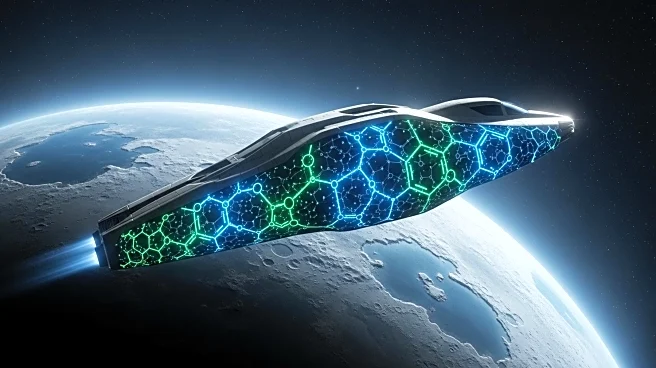What is the story about?
What's Happening?
Recent findings from the Cassini mission have revealed complex organic molecules in the plumes of Saturn's moon Enceladus, suggesting intricate chemical reactions within its subsurface ocean. The discovery, published in Nature Astronomy, indicates that these reactions could lead to biologically relevant molecules. The Cassini spacecraft, which ended its mission in 2017, detected these molecules in ice grains ejected from Enceladus, providing fresh samples from the moon's ocean. The presence of these organic substances increases the habitable potential of Enceladus, making it a prime candidate for future exploration by the European Space Agency (ESA).
Why It's Important?
The discovery of complex organic molecules on Enceladus is significant as it strengthens the case for the moon's potential to harbor life. The presence of liquid water, energy sources, and complex organic compounds are essential conditions for life, making Enceladus a key target for astrobiological studies. This finding supports plans for a dedicated ESA mission to further investigate the moon's habitability. The implications extend to the broader search for life beyond Earth, offering insights into the conditions that might support life in extraterrestrial environments.
What's Next?
The ESA is considering a mission to Enceladus that would involve orbiting the moon and landing on its surface to collect samples. This mission aims to directly measure the organic compounds and assess the moon's potential for life. The findings from Cassini will guide the selection of scientific instruments for this mission, which could launch around 2042. The mission's success could provide Europe with a leading role in solar system exploration and contribute to understanding the conditions necessary for life.
Beyond the Headlines
The discovery of organic molecules on Enceladus raises ethical and scientific questions about the search for life beyond Earth. It challenges our understanding of life's origins and the conditions required for its existence. The potential for life on Enceladus could redefine our approach to planetary exploration and the search for extraterrestrial life, emphasizing the need for careful consideration of contamination and preservation of extraterrestrial environments.















